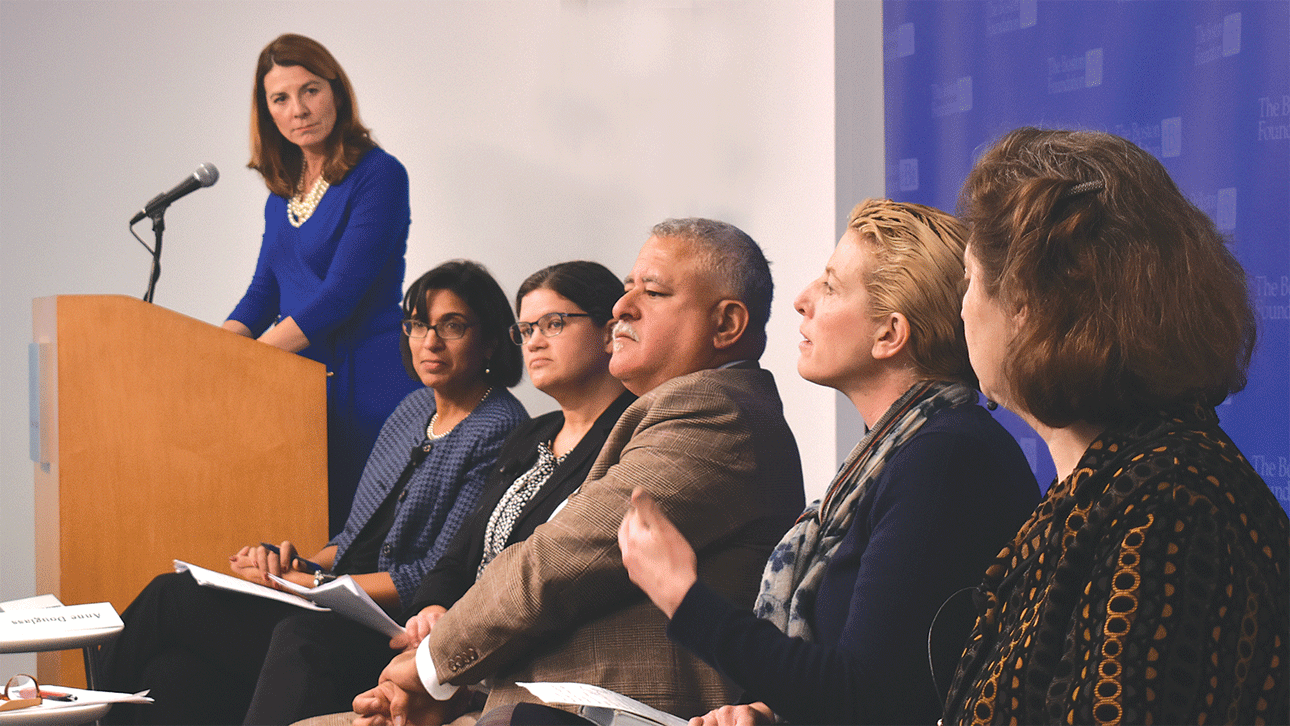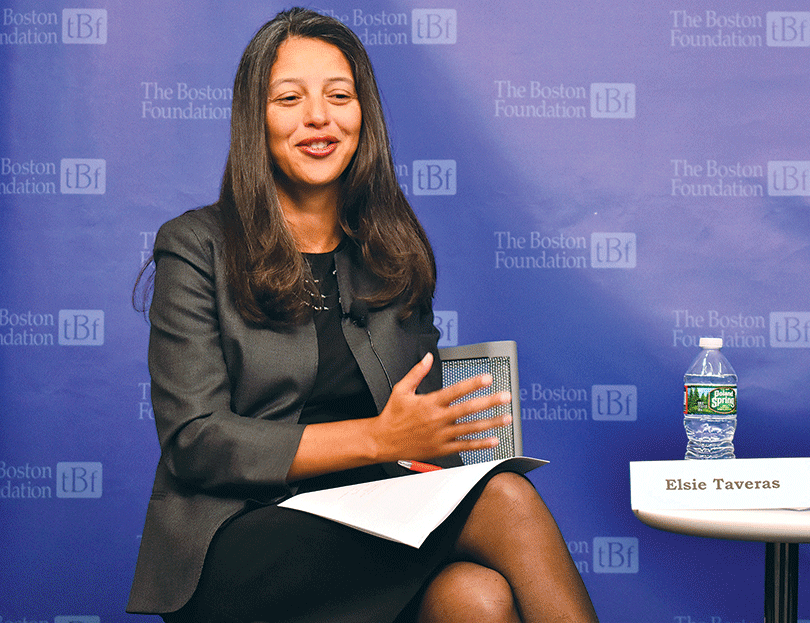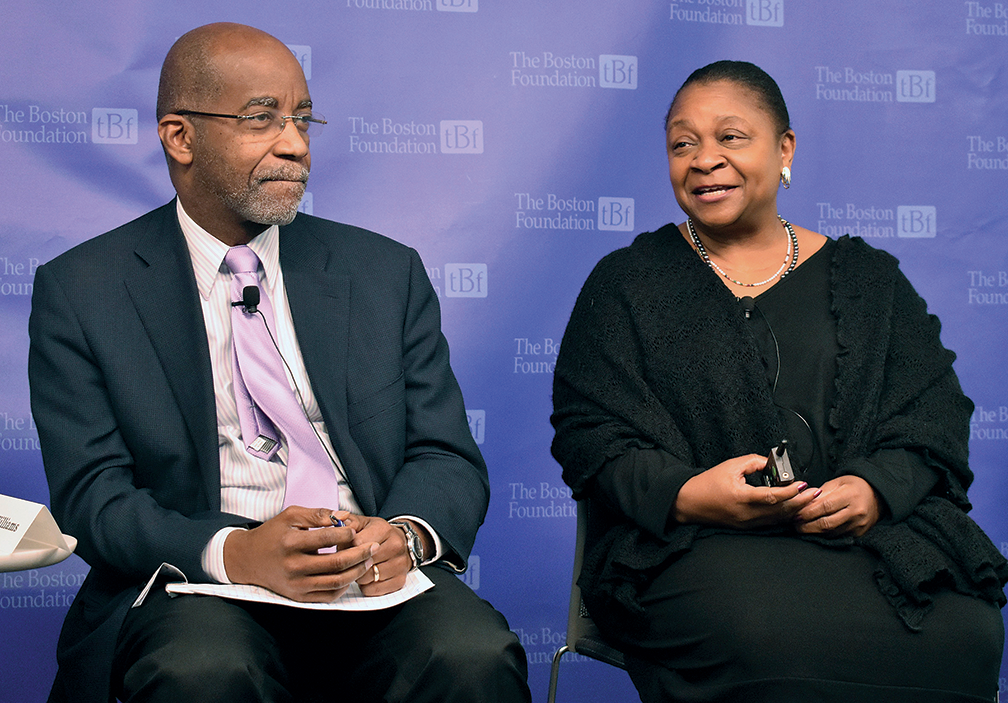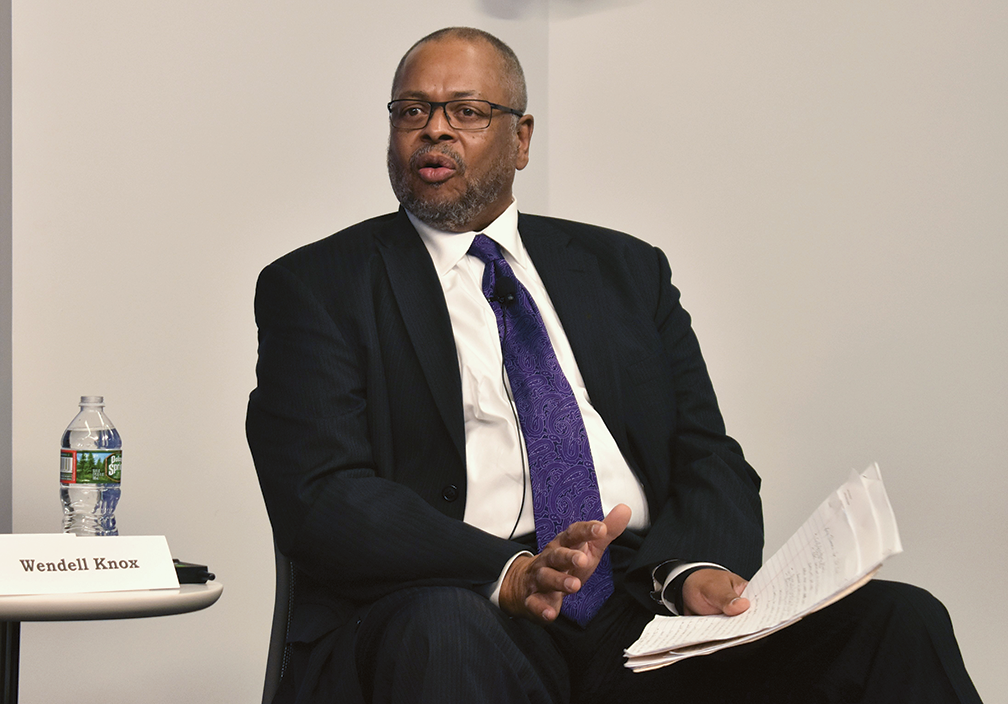Exploring Early Childhood
As part of its Vision 2020 strategic plan, the Boston Foundation is deepening its focus on the critical pre-natal to age five early childhood years to improve children’s readiness for success in school and life. The forums reported below were the first of several forums and smaller convenings planned for the coming year to raise public awareness of opportunities and challenges in early childhood.
BUILDING A FOUNDATION FOR SUCCESS
On November 15, a forum focused on Boston’s progress toward universal high-quality Pre-K drew providers, researchers, educators and policy makers for a wide-ranging conversation.
Turahn Dorsey, Chief of Education for the City of Boston, noted that driving up quality and making it consistent among all providers is the focus of the City’s current work. He called upon Jason Sachs, Director of Early Learning in the Boston Public Schools, who recounted the increase from 300 to 2,500 children in programs and other signs of progress over the last decade, but said that finding the funding mechanism for teacher salaries was the most critical issue.
This was the most agreed-upon point during a panel discussion led by Elizabeth Pauley, the Boston Foundation’s Senior Director for Education to Career. With due respect to providers who’ve nurtured children for decades with little more than a high school degree, panelists pointed to research showing better outcomes for children associated with higher educational attainment of their teachers. Sharon Scott Chandler, COO and Executive Vice President of ABCD, agreed that quality can come from education and certification, but asked, “How can a working child-care professional pursue a degree while barely making a living wage?” Kelly Pellagrini, Co-Director of the Charlestown Nursery School, shared that 39 percent of early education workers qualify for public assistance.
At UMass Boston, Associate Professor and Program Director of Early Childhood Anne Douglass oversees a degree program especially for working people. It has grown to 300 students, but she still sees reluctance to invest in pursuing such a low-paid profession.
Wayne Ysaguirre, President and CEO of the Nurtury, emphasized the urgency of the need to break down silos. Along with Sachs and Jocelyn Bowne, Director of Research at the Mass. Department of Early Education and Care, he called for a “marriage” to unite all of the separate systems in the Pre-K space to come together to put children first.
THE CRUCIAL FIRST 1,000 DAYS
On December 6, the Foundation held a forum that explored collaborative models that prepare children for success. Dr. Elsie Taveras opened the event by reporting on the First 1,000 Days Program, which aims to prevent the development of obesity among mother-infant pairs at MGH’s Revere and Chelsea HealthCare Centers and DotHouse Health, where rates of maternal-child obesity are higher than local and national averages.
“The first thousand days—conception to age 2 years—is an important period for the prevention of obesity in mother-child pairs and their families,” explained Taveras. Mother-child pairs are followed from the mother’s first prenatal visit until the child’s second birthday.
She thanked the Boston Foundation for its support of the program, which engages providers from primary care, mental health and community health services. “It’s so important to do what the Boston Foundation is doing by breaking down the silos between health and education,” she said. “We have to leverage emerging science and use that science to drive systemic change.”
During a panel moderated by Nineequa Blanding, the Boston Foundation’s Director of Health and Wellness, Wendell Knox, a founder of Boston Basics, which uses the existing social infrastructure to share with parents five basic behaviors that boost babies’ language abilities, reasoning and confidence, echoed a theme that was discussed in the previous forum. “Working across sectors is crucial,” he said. “We need to speak a common language, so let’s develop one!”
David R. Williams, Professor of Public Health and African American Studies and Sociology at the Harvard Chan School of Public Health, recounted some depressing statistics about the racial components of poverty in America, where the income gap between blacks and whites is the same as it was in 1978. He added, “For every dollar of wealth whites have, blacks have just 6 cents and Latinos have 7 cents.” He made the point that other countries, even poorer countries, invest far more in the early success of their children.
Another panelist was Mary Coleman, Senior VP and COO of EMPath, which coaches low-income parents to help them attain a level of self-sufficiency. She countered some of the pessimism in the room by saying forcefully, “Childhood does set a trajectory, but let’s remember that adversity is not destiny!”
EARLY CHILDHOOD RESEARCH ROUNDTABLE SERIES
As part of our Vision 2020 strategic plan, the Boston Foundation is deepening its focus on the critical pre-natal to age 5 early childhood years to improve children's readiness for success in school and life. We plan to host several forums and convenings in the coming year to raise public awareness of opportunities and challenges in early childhood. In this context, we are launching the Early Childhood Research Roundtable series. This series will periodically convene researchers and program and policy leaders to discuss a specific topic in early childhood with the objective of strengthening connections between research and practice.
Our inaugural Early Childhood Research Roundtable focused on a recent Brookings Institution's report titled "The Current State of Scientific Knowledge on Pre-Kindergarten Effects," which summarizes what is known about the effectiveness of state and district pre-kindergarten programs on children's learning outcomes. The session will feature presentations by two of the report's authors, and include a discussion about the effectiveness of the Boston Public Schools' pre-kindergarten program.
Photos by Julia Howard.





